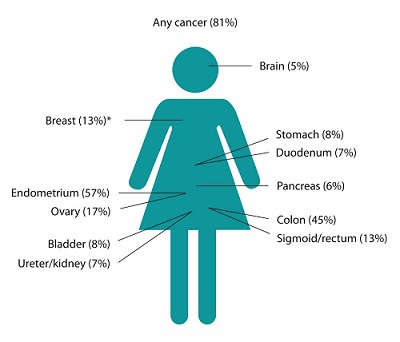These resources have been reviewed by a panel of consultants and trainees. Quotes have been provided by this panel.
3.3.1 Genomics and cancer care
How genomics is used in cancer care. Improved technologies, increased understanding of genomic data, and the increased availability and affordability of testing, have all brought changes to the way in which patients and their families are treated and cared for. As genomics becomes embedded into routine care, it's important that all gynaecologists have an understanding of where genomics may be relevant and how to manage and base decisions on genomic data.
3.3.2 The Realisation of Personalised Medicine
This short video from HEE describes exciting developments in the analysis of mutational signatures in tumour DNA. It demonstrates how genomic testing can provide a useful picture of the mutational signature of an individual’s cancer, which can enable the detection of inherited cancer susceptibility genes which might impact on treatment and management.
3.3.3 Interpretation of variants of uncertain significance (VUS)
A short video with a case study exemplifying the dangers of poor interpretation of genomic results for individuals and their families and the concept of variants of uncertain significance. It outlines the importance of exercising caution when reporting genomic variants.
3.3.4 Tumour immunology and immunotherapy
This animation illustrates how tumour cells are sensed and destroyed by cells of the immune system; how tumours can evolve to evade immune-mediated elimination; and how some immunotherapies are designed to help the immune system ‘fight back’.
3.3.5 Immunotherapy: Boosting the immune system to fight cancer
Presentation from Nature dealing with the different approaches that are being investigated to harness the immune system to treat cancer. This video supplements 3.2.4.
3.3.6 Lynch syndrome for the gynaecologist
Article – The Obstetrician and Gynaecologist (TOG)
Learn the pathogenesis of Lynch Syndrome and its associated gynaecological cancers, and learn how best to counsel women with Lynch syndrome regarding cancer and risk-reducing strategies.

Ryan NAJ, McMahon RFT, Ramchander NC, Seif MW, Evans DG, Crosbie EJ. Lynch syndrome for the gynaecologist. The Obstetrician & Gynaecologist 2021;23:9–20.
